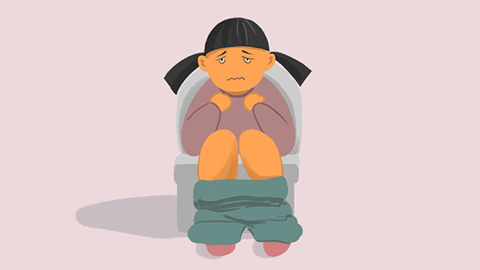What is the best way to naturally cure hemorrhoids?
Generally speaking, there is no best self-healing method for hemorrhoids. Hemorrhoids, also known as piles, may be caused by prolonged sitting or standing, constipation, perianal inflammation, anal fissures, rectal prolapse, and other factors. Treatment can be pursued under a doctor's guidance through general treatments, medication, and other methods. A detailed analysis is as follows:

1. Prolonged Sitting or Standing
Maintaining the same posture for extended periods, such as sitting or standing, can lead to poor blood circulation in the pelvic cavity, increased venous pressure, and consequently, dilation and tortuosity of the venous plexus around the distal rectum and anal canal, forming hemorrhoids. It is recommended to change positions regularly, and to get up and move around for 5-10 minutes every hour of sitting or standing to promote blood circulation.
2. Constipation
Constipation is usually caused by insufficient dietary fiber intake, inadequate water consumption, and lack of physical activity. Straining during bowel movements can increase pressure on the rectum and anus, leading to congestion of the venous plexus, and long-term effects may easily result in hemorrhoids. Maintain a balanced diet in daily life and consume more high-fiber foods, such as vegetables, fruits, and whole grains, to promote intestinal motility and reduce the occurrence of constipation.
3. Perianal Inflammation
Perianal inflammation is caused by bacterial infection, commonly occurring when there is skin damage around the anus or poor hygiene. It may lead to redness, swelling, and pain of the perianal skin. The inflammation can further spread to the venous plexus of the distal rectum, causing hemorrhoids, and may also be accompanied by symptoms such as itching and increased secretions. Under a doctor's guidance, medications such as erythromycin ointment, mupirocin ointment, and clotrimazole cream can be used for treatment.
4. Anal Fissure
Anal fissures are mostly caused by anal trauma, which may lead to a full-thickness tear in the anal canal skin. Scar tissue formed during the healing process may affect venous return in the anal canal, resulting in hemorrhoids. This may also be accompanied by severe pain and bleeding during bowel movements. Patients may use medications such as ibuprofen ointment, lidocaine hydrochloride gel, and Kangfuxin solution under medical advice.
5. Rectal Prolapse
Rectal prolapse is caused by relaxation of the pelvic floor muscles or weakening of the supportive structures around the rectum, which may cause downward displacement of the rectal mucosa, pulling on the venous plexus at the distal rectum, causing congestion and dilation, and forming hemorrhoids. Patients may also experience symptoms such as a feeling of rectal heaviness. Under a doctor's recommendation, patients may use medications such as Maziren soft capsules, Diyuhuaijiao pills, and mesalazine enteric-coated tablets for treatment.
Maintain a regular lifestyle and avoid excessive fatigue. Pay attention to personal hygiene and keep the anal area clean and dry.








